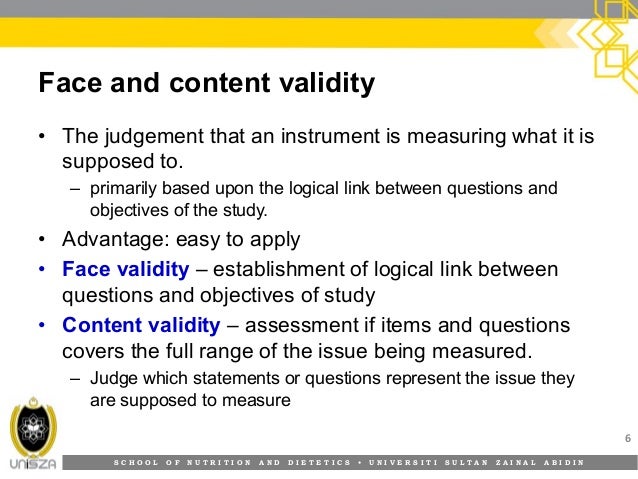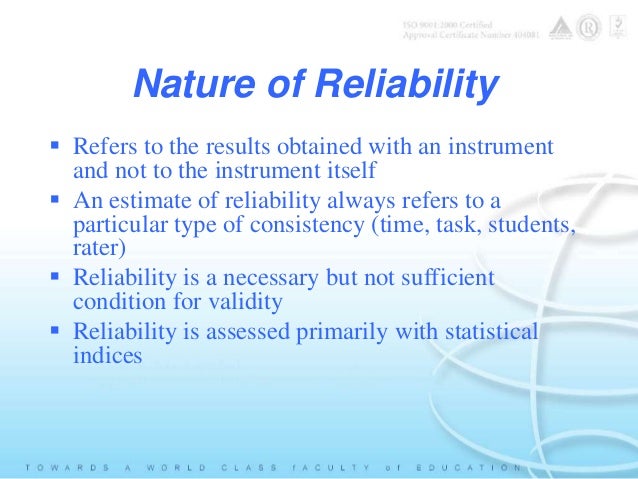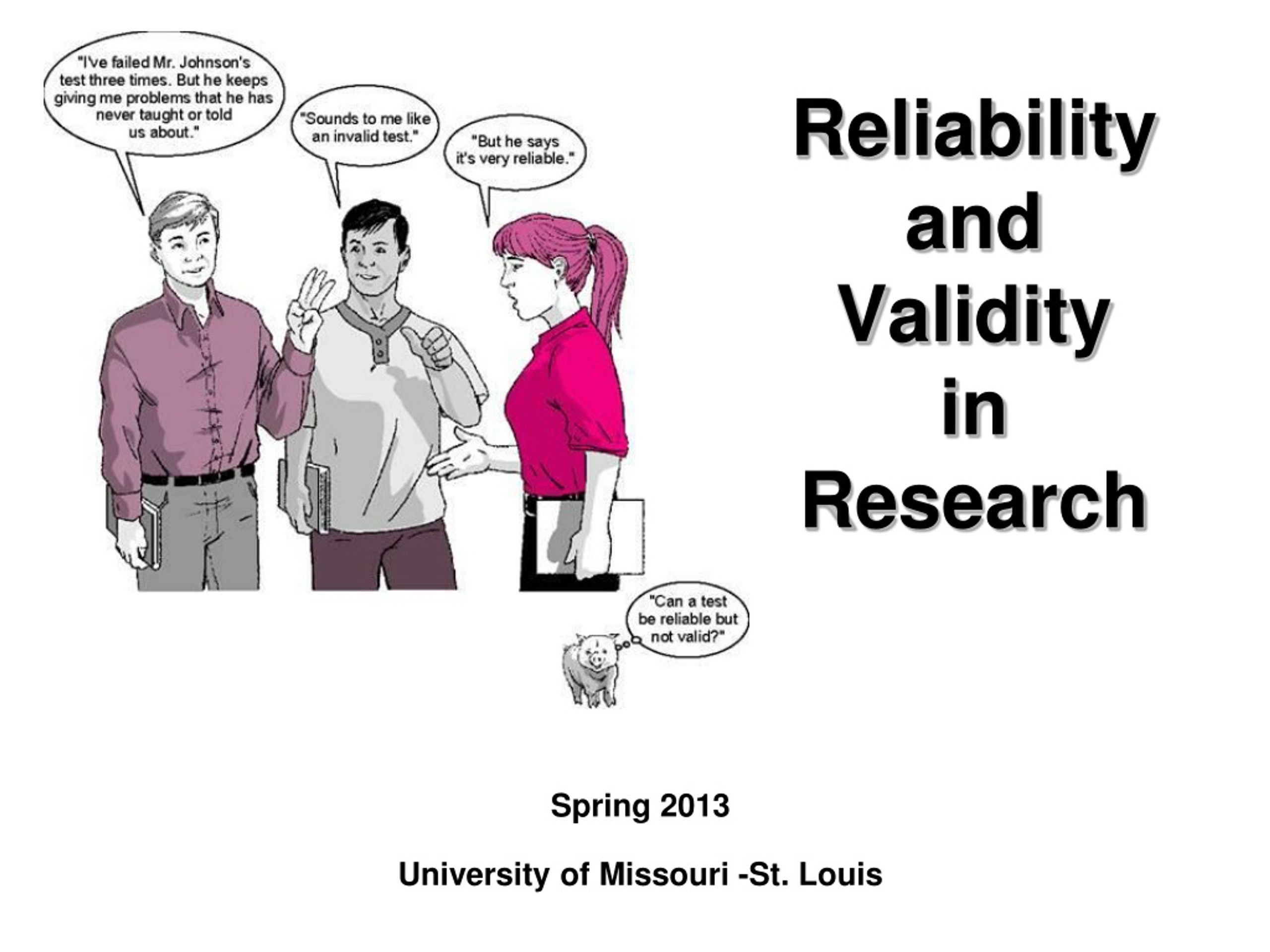

Each option can be used to help you determine the overall accuracy and consistency of your research. Test-retest reliability, internal reliability, and inter-rater reliability are among the most common types of reliability assessment. Here are some of the most common tests used to assess the reliability and validity of research. Several types of assessments can be used to determine whether the information you gather is reliable and valid. How are reliability and validity assessed? Why is this difference important?Įxperiments that cannot be replicated with similar results and those that do not adequately address the question they were designed to solve produce results that should not be used for further research or as a basis for important decisions and/or policies. Since reliability and validity are different, quality research should reflect both of these principles.

It is possible for an experiment to be reliable but not valid, or valid but not reliable, but the most accurate experiments produce strong, consistent results in both categories. Reliability and validity provide slightly different indications about the overall quality of your research and whether the data you obtain can accurately be used in service of your reason for doing the experiment. What is the difference between reliability and validity? Validity can be harder to determine than reliability, but a high level of reliability assists in proving that your research is valid.

Validity indicates the extent to which your research usefully and accurately measures what you are trying to measure and how that stacks up with other established concepts.

Just because an experiment can be reproduced correctly doesn’t make the results or outcomes reliable. Effective research and experiments should produce similar results over time when performed by other people, as long as instructions and conditions (methodology) are followed correctly or in the same manner each time.Įxperiments that generate unusually large differences in results should be questioned. Reliability indicates the extent to which the results of an experiment can be replicated when it is performed multiple times. Here is an overview of what constitutes research that is reliable and valid, and how to make sure your experiments fit into both categories. Knowing that your research produces accurate, quality data is a must when it comes to applying or presenting your results.


 0 kommentar(er)
0 kommentar(er)
